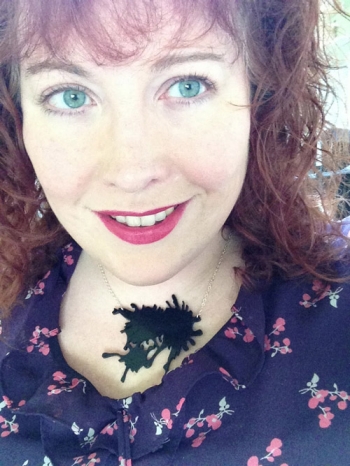
By
Writer and editor Maura Johnston, a key figure in the transition of music and popular culture journalism to the Digital Age, has been appointed as the Institute for the Liberal Arts’ first Journalism Fellow.
Johnston — a founding editor of Gawker Media’s music blog Idolator and former Village Voice music editor who earlier this year launched Maura Magazine — will be a member of the ILA's seminar on academia and public life, visit journalism and writing classes, and teach two undergraduate courses of her own: Journalism and New Media in the fall, and Writing About Popular Music in the spring.
A contributor to Rolling Stone, The Awl, Newsday and Spin, Johnston has discussed music and popular culture on National Public Radio, WNYC, WBUR and CBC Radio, among others, and has taught the course Writing about Popular Music at New York University's Clive Davis Institute Of Recorded Music since 2010.
“It will be very exciting to have on campus someone who has been a leader in developing new forms of journalism online,” said Rattigan Professor of English Mary Crane, the ILA director. “I know students and faculty will both benefit from her presence.”
“Maura brings such a wealth of experience and sophistication in exploring the possibilities of new media,” said Professor of English Carlo Rotella, an ILA Governing Board member. “She's been a pioneer in everything from the online expansion of traditional magazines and newspapers to purely digital publications, including the emerging field of subcompact publishing. Having her here will give all kinds of members of the BC community opportunities to draw on her knowledge.”
Crane added that Johnston’s appointment is part of a larger renewal and fresh commitment to journalism at BC. She noted the creation of a new journalism concentration within the American Studies Program, an expanded slate of journalism courses open to undergraduates in any college or major across the University, and an ILA seminar for faculty interested in journalism as a way to reach a wider academic and public audience.
“I look forward to coming to Boston College this fall,” said Johnston, whose sister is a BC Law alumna. “BC is an intellectual mainstay in a city I find fascinating, and I’m sure the experience of spending an academic year there will be very fulfilling.”
Johnston noted that Boston bears witness to the harsh realities facing traditional journalism, citing as examples the closing of alternative newspaper The Phoenix, as well as the efforts of the Boston Globe and Boston Herald to adjust to difficult economic and social trends, especially the growing popularity of online news sources.
“The challenge is how to promote quality journalism in this new economic model,” said Johnston, “just as young writers face the challenge of how to navigate in this changing landscape.”
With the advent of online publications and blogs, and the retreat of the traditional newspaper model, Johnston said it is increasingly incumbent upon writers to be their own marketing department, and promote their work through social media such as Twitter.
“But it goes farther than that,” she added. “If you’re a writer, you have to get the people you’re writing about to help promote your work, too. That represents a significant change from the past, when as a journalist your relationship with the subjects of your writing was viewed as ‘adversarial.’
“So what does all this mean for the profession? These are some of the questions I hope to explore with students and others in the BC community.”
Rotella, who is acquainted with Johnston herself as well as her work, said her appointment represents an unlikely but mutually beneficial partnership: a groundbreaking practitioner in 21st-century journalism working at a university grounded in the classic liberal arts tradition.
“She represents a meeting point between the priorities of online journalism and the kind of care of intellectual craftsmanship that we teach in writing workshops, journalism courses, and the liberal arts more generally,” said Rotella. “I think too often we fall into the trap of thinking of online writing as fast and sloppy, and too often it is. But she's an excellent example of a journalist doing careful, highly crafted work — and enabling others to do it — and yet also taking advantage of what the digital world has to offer.
“The traditional deep virtues of the liberal arts can in fact translate to the online world, but it takes some imagination to get it right. One of the things I'm most eager to see is how she can help students and faculty alike think past the false trade-off between quality and digital speed.”
For more about the Institute for the Liberal Arts, see http://www.bc.edu/centers/ila.



